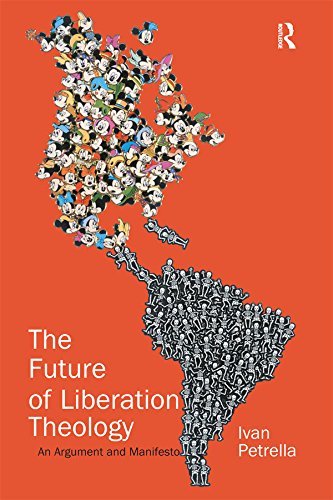Dios en el siglo XXI
Más del ochenta por ciento de la población mundial sigue alguna religión. Sin embargo, es poco lo que sabemos sobre ellas. Este libro aborda el judaísmo, el cristianismo, el islam, el hinduismo y el budismo, y explica qué son, cuál es su origen, cuáles son sus principios básicos o preceptos y cómo es su culto hoy.
Que se metan todos
Ivan Petrella, legislador porteño del PRO, propone renovar la política haciendo que más gente común -ciudadanos- participemos de la cosa pública en lugar de dejarla en manos de los políticos de siempre. Explora casos-líder en el mundo que dan cuenta de hondas mejoras sociales y de calidad de vida logradas por medio de nuevas políticas.
Beyond Liberation Theology: A Polemic
Ivan Petrella provides a bold new interpretation of liberation theology’s present state and future possibilities. In so doing, he challenges a number of established pieties: Instead of staying within the accepted norm of examining liberation theologies individually as if they were closed worlds, he dares develop a framework that tackles Latin American, Black, Womanist, and Hispanic/Latino(a) theologies together; instead of succumbing to the fashionable identity politics that rules liberationist discourse, he places poverty at the forefront of concern; instead of seeking to carve out a small space for theology in a secular world, he shows that only an expansive understanding of liberation theology can deal with contemporary challenges. The end result is a wake-up call for liberation theologians everywhere and a radical new direction for liberation theology itself.
The Future of Liberation Theology
The Future of Liberation Theology envisions a radical new direction for Latin American liberation theology. One of a new generation of Latin American theologians, Ivan Petrella shows that despite the current dominance of ‘end of history’ ideology, liberation theologians need not abandon their belief that the theological rereading of Christianity must be linked to the development of ‘historical projects’ – models of political and economic organization that would replace an unjust status quo. In the absence of historical projects, liberation theology currently finds itself unable to move beyond merely talking about liberation toward actually enacting it in society. Providing a bold new interpretation of the current state and potential future of liberation theology, Ivan Petrella brings together original research on the movement, with developments in political theory, critical legal theory and political economy to reconstruct liberation theology’s understanding of theology, democracy and capitalism. The result is the recovery of historical projects, thus allowing liberation theologians to once again place the reality of liberation, and not just the promise, at the forefront of their task.
Another Possible World
Not since the ‘Theology in the Americas’ conferences and the heyday of EATWOT (Ecumenical Association of Third World Theologies) in the late 70’s, have the most important theologians the world over met to discuss the future of theology and our globe. The World Forum on Theology and Liberation took place in Brazil in 2005 and was the meeting of the world’s foremost thinkers and theologians concerned with contextual or liberation theologies. This book offers the reader a selection of the contributions to the first World Forum on Theology and Liberation, and as such offers readers a unique opportunity to read in English for the first time, many of the discussions, beliefs and aspirations. Contributors believe that another world is in fact possible one where justice will reign. This book provides the basis of their agendas and vision for the future.
Latin American Liberation Theology
“To the question “Whither Liberation Theology in the new Century?” the answer, as this absorbing and informative collection of essays demonstrates, is “toward several lively and promising new developments”. New conditions breed new questions, which demand new theological thinking. Here are several fresh and vigorous examples of that thinking.”
– Harvey Cox, author, When Jesus Come to Harvard





